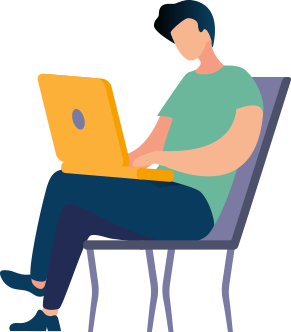Since our service launched in January 2021, we have supported a wide range of people with their mental health and emotional wellbeing.
No two stories are the same, and the symptoms you experience may be different from your friends or colleagues. The same can be said for recovery, and what works for one person may be different for others.
Here we have shared stories from people we've worked with to help you understand how Here for You can help:
"I was at a point in my career being a year qualified as a mental health nurse. I was becoming burnt out, depressed and anxious. Having 1:1 sessions saved my career as a nurse. I was able to feel supported and work through my presenting situation"
"My time with Here for you has been fantastic. I started the journey feeling overwhelmed at home and fed up at work and depressed. My clinician helped me to take a step back from my worries and this helped me to see things differently. I discovered so much about myself especially how much guilt plays a huge part in my thoughts. This time has been so precious and has helped me to be more passionate towards myself. Thank you to my clinician so much for everything you have helped me with. I now look forward to the future rather than dreading it"
"My low mood and anxiety have been centred around a very traumatic and sensitive problem. Having access to Here for You enabled me to talk to somebody about it without fear of bias, breaking confidentiality, and prejudice. The fact that I can ask for help again if needed is very comforting"
List of news
"I have found my support with Here for you so so helpful and I am really grateful this service is available for the SABP staff. I have felt listened to and that my needs matter which as a mental health professional who found it initially difficult to reach out for support was important. My clinician was so supportive, she helped me understand my difficulties more, make connections and gave me new ways of coping with my anxiety which before treatment I did not think was possible. Thank you"
"The service I received from ‘Here for You’ was both timely and effective. I appreciated the ability to speak openly about my work-related issues without fear of negative consequences. My clinician not only helped me manage stress and conflict at work, but also helped me to improve my productivity and ability to focus on solutions. Although work life still has its ups and downs, I feel more resilient and equipped to face daily challenges. I highly recommend this service to others and would certainly use it again if needed. I hope this service remains available to all employees, as I believe it is extremely beneficial"
"My clinician created a therapeutic space in which I felt comfortable opening up and exploring my worries. She made me feel listened to and validated. Thanks to her input and the challenging work she guided me through, I have noticed how my response to stress has changed. I can't thank her enough"
"I had a trauma 2 years ago, working with your team has enabled me to reflect on difficult times and how to work through them. I would just like to say you have an amazing team and I am very thankful for the sessions that I have had it has definitely had an impact in a positive way for me even though I think I cried through most of them it was a place where I felt I could cry and express how I actually felt. Thanks so much for all you’ve done. I truly appreciate the effort working with me. I cannot express my gratitude"
"I found my relationship in work had broken down significantly, due to work pressures, my mental health, and unrealistic pressures of work. These sessions gave me time to discuss my concerns and get impartial support. I cannot thank my clinician enough; she was amazing and supportive. She pushed myself and also didn't just agree with what I said, she made simple practical goals which pushed myself"
"To me it was invaluable as it helped me navigate around a really difficult emotional issue, helped me find my own answers and helped me have a space to communicate what I was struggling with. I would recommend it to any staff member and working with my clinician got me to a point of acceptance. I am immeasurably more mentally resilient. Thank you to my clinician, I hope in any small way I am to give other people what you gave me"










